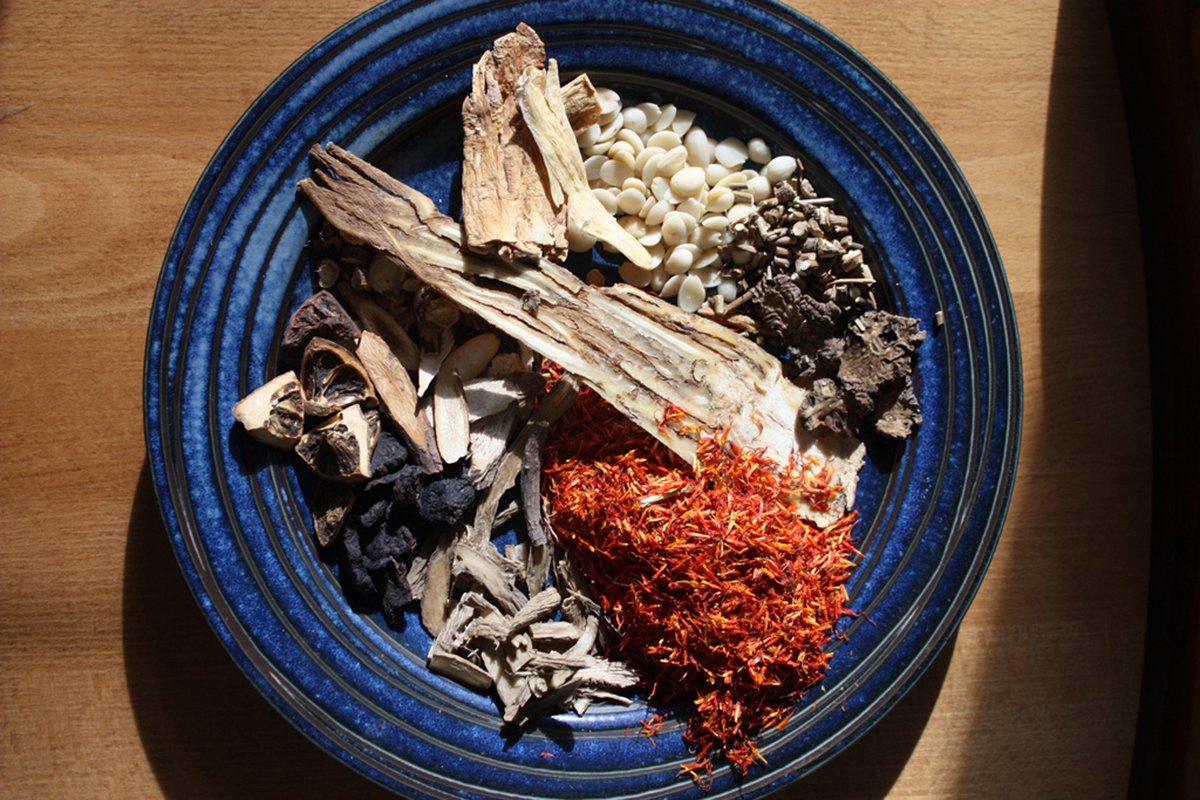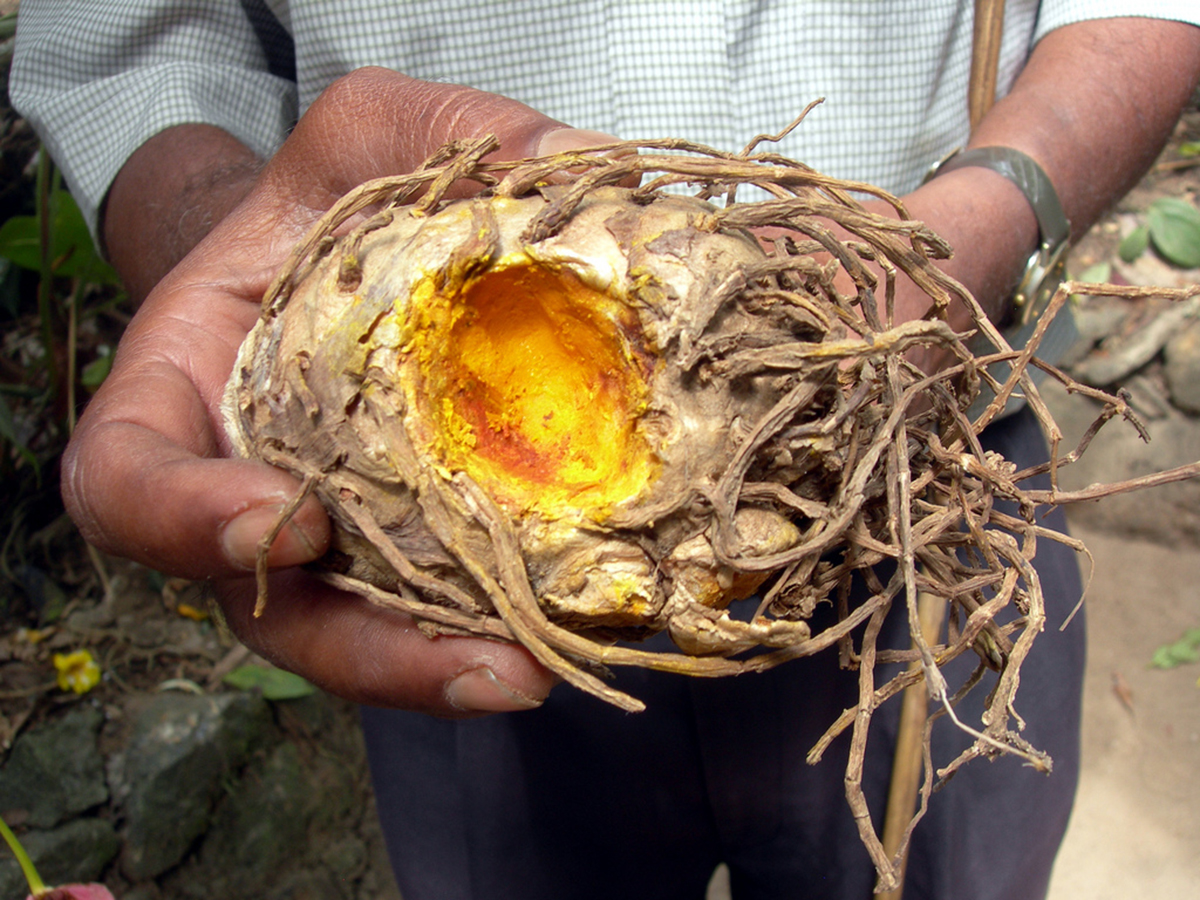Like many other products of the Philippines, herbal medicine tends not to get the attention it deserves. It's only in recent years that people outside the Philippines have begun to hear about banaba leaf as a supportive therapy for diabetes, or pandakaki-kuti as the "Filipino Viagra," or niyog-niyogan for treating parasitic infections. Although it's not a native plant of the Philippines, the guyabano (also known as soursop or graviola) tree is a very popular plant among herbalists and even doctors treating cancer with limited resources.
If you were to go to a medical school library and start pulling studies of guyabano in the treatment of cancer, it would seem that there is a lot of evidence in favor of using the leaves and bark of this tree in cancer therapy. Various articles report that guyabano products:

- Kill squamous cell carcinomas, under laboratory conditions.
- Contain acetogenins and flavonoids (plant compounds) that act synergestically against prostate cancer, under laboratory conditions.
- Limit the growth of precancerous "crypts" in the colon, under laboratory conditions.
- Induce cell cycle arrest and apoptosis through mitochondria-mediated pathway in human HCT-116 and HT-29 colon cancer cells, under laboratory conditions.
- Prevent the growth of chemically induced papillomas (skin tumors), in mice, under laboratory conditions.
- Contain tannins that prevent the proliferation of skin cancers, under laboratory conditions.
At first glance, your reaction to the citations of the scientific literature might be, "Wow! This stuff really treats cancer!" Then you look again, and you notice that all of the studies (and although 13 other studies are not summarized here, it's true of all of the published scientific studies of this plant) are limited to its effects on cancer cells in a test tube or on laboratory mice. This doesn't mean that the plant has no efficacy for human cancer treatment at all, but it does mean that scientists don't know:
- Whether the compounds in the plant that have an effect on cancer cells in a test tube also have an effect on cancer cells in the human body,
- If the compounds really do have an effect on cancer cells in the human body, whether they are broken down in the digestive tract before they even reach the cancer,
- If the compounds really do have an effect on cancer cells in the human body and they survive their passage through the digestive tract and they have an effect on cancer, whether they have a beneficial effect at all stages of cancer, or
- Whether the compounds in the plant do survive digestion and reach cancer cells and have a beneficial effect on all stages of the cancer, but they may interfere with other treatments (whether it's another herb or a conventional cancer treatment) that works better.
If your only option is an herb, and you have nothing to lose, and the herb has no known detrimental effects, then it usually makes perfect sense to use it. If you have other options, then you want to choose the best combination of treatments for your current stage of cancer. That may include an herb. It may not. Here's a concrete example.
Curcumin, An Amazing Intervention For Cancer, Sometimes
Many promoters of natural therapies are especially enthusiastic about curcumin, the yellow-orange antioxidant found in the spice turmeric. There are a number of general properties of curcumin that pique the interest of people interested in cancer treatment.
- Conventional cancer treatments kill cancer through the process of necrosis. They kill a tumor, and then the body has to deal with a mass of dead tissue. Curcumin kills cancer by activating a process called apoptosis. Individual cancer cells "commit suicide," but at different rates, so the body doesn't have to deal with a huge mass of dead tissue.
- Curcumin activates a gene called p53, which acts as a kind of "watchdog" to prevent the multiplication of certain kinds of cancer cells.

- Curcumin shuts down the production of four enzymes that help mitochondria make energy, but only in cancer cells. Curcumin doesn't affect these enzymes in healthy cells.
- Curcumin shuts down the production of enzymes that "unzip" DNA so cancerous cells can multiply. It does not have this effect in healthy cells.
- Curcumin interferes with the ability of testosterone to attach itself to prostate cancer and testicular cancer cells, preventing stimulation of cell growth by the hormone.
- Curcumin interferes with the ability of insulin to attach itself to certain kinds of cancer cells, preventing the action of insulin-like growth factors.
- Curcumin interferes with the action of an enzyme called glyoxylase, which enables cancer cells to use sugar.
- Curcumin interferes with the action of an enzyme called ornithine decarboxylase, which is especially important in the production of energy in leukemia cells.
There are applications of curcumin for breast cancer, brain cancer, bladder cancer, basal cell carcinoma, colon cancer, liver cancer, non-small cell lung cancer, prostate cancer, lung cancer, leukemia, lymphoma, melanoma, and more. Curcumin is active at every stage of cancer in different ways. It is by far the most extensively studied and most active natural treatment for the most different kinds of cancer.
So every cancer patient should be taking curcumin, right?
Actually, there is a downside to curcumin for some cancer patients.
- By the time you have stage IV cancer, very few treatments act predictably. There have been studies that found that curcumin extended life even in stage IV cancer, but none that found that it is curative.
- For some reason not yet explained, curcumin is useful in stages I, II, and IV of most kinds of colon cancer, but it makes stage III worse.
- Most forms of curcumin (with the notable exception of a product called Longvida) are activated in the liver through a process called glucuronidation. This means that taking those forms of curcumin can reduce the ability of the liver to detoxify other treatments through the process of glucuronidation. Taking curcumin with the chemotherapy drugs cyclophosphamide (Cytoxan) and teniposide makes those drugs more toxic, rather than less.
- Just as turmeric was combined with black pepper in Ayurvedic herbal medicine, curcumin is often combined with a chemical from black pepper called piperine to make it more easily absorbed by the digestive tract. The piperine in the product interferes with the liver liver enzyme CYP3A4, which processes paclitaxel, docetaxel, tamoxifen (Taxol), cyclophosphamide (Cytoxan), doxorubicin, irinotecan, and about 20 more common chemotherapy drugs.
None of this means that graviola, curcumin, or other herbal products never have a place in cancer treatment. They need to be used judiciously, with the help of a knowledgeable herbalist or a doctor who knows a great deal about herbal medicine. Herbs can help you fight cancer, but they never do the whole job. Use the right herb at the right time to get the benefits of both natural and conventional medicine.
- Ben-Arye E, Popper-Giveon A, Samuels N, Mutafoglu K, Schiff E, Omran S, Charalambous H, Dweikat T, Ghrayeb I, Turker I, Hassan A, Hassan E, Nimri O, Kebudi R, Silbermann M. Communication and integration: a qualitative analysis of perspectives among Middle Eastern oncology healthcare professionals on the integration of complementary medicine in supportive cancer care. J Cancer Res Clin Oncol. 2016 Feb 1. [Epub ahead of print] PMID: 26833203.
- Rister, Robert S. Healing without Medication. Kindle edition, 2016.
- Photo courtesy of steenbergs: www.flickr.com/photos/steenbergs/6865121460/
- Photo courtesy of pathwithpaws: www.flickr.com/photos/pathwithpaws/5638185450/
- Photo courtesy of pathwithpaws: www.flickr.com/photos/pathwithpaws/5638185450/


Your thoughts on this